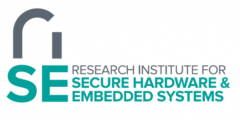The “UK’s Digital Security by Design Showcase 2025” offers a unique opportunity to witness the transformative progress being achieved by businesses through innovative strategies and ground-breaking technologies such as CHERI. These advancements are poised to significantly reduce the economic impact of cyber security breaches, delivering far-reaching benefits for the economy and society. The showcase will provide the opportunity to meet and discuss these pioneering technologies with organisations that have been pivotal to delivering the aims of the UK Government’s Digital Security by Design Programme to make the UK the safest place to live and work online. This showcase will be held on Tuesday
Birmingham, UK – July 31, 2024 – Today, at the RISE Annual Summer School held at the University of Birmingham, a significant report titled “Security in the Era of Global Semiconductor Initiatives” was launched. The report outlines a strategic overview of the current challenges and emergent opportunities in semiconductor security, spurred by the insights from a workshop on Security in the Era of Global Semiconductor Initiatives, which was held in November 2023 in Washington DC, co-chaired by Professor Maire O’Neill, Queen’s University Belfast and Professor Mark Tehranipoor, University of Florida. The report, available here, provides an in-depth analysis of the
The UK Product Security and Telecommunications Infrastructure (PSTI) regime has come into force, effective from 29th April 2024. The regulations apply to businesses that manufacturer, import or distribute connectable products in the UK, i.e. products that connect over the internet or can be networked with other devices. The Security Requirements The security requirements are actions that relevant businesses in the supply chain must take, or requirements that a product must meet, to address a security problem or eliminate a potential security vulnerability. Schedule 1 to the 2023 Regulations sets out the specific requirements that must be complied with in relation
NCSC has approved funding for RISE Phase 2 from 2023-2026, which is hosted under Professor Máire O’Neill at the Centre for Secure information Technology (CSIT), Queen’s University Belfast. 3 new RISE research projects have been funded by EPSRC, bolstering hardware & embedded systems security research. The National Cyber Security Centre (NCSC) – a part of GCHQ – has approved funding for RISE Phase 2 from 2023-2026, which is hosted under Professor Máire O’Neill at the Centre for Secure Information Technologies (CSIT), Queen’s University Belfast. Three new RISE research projects have also been funded by the Engineering and Physical Sciences Research
A lively conversation about whether “Engineering Significant Difference” is the key to enhanced cybersecurity. Contributors: Peter Davies, Security Expert operating at the convergence of Safety and Security.An honorary Fellow with Imperial College’s Institute for Security Science & Technology and chair of the AESIN Security Workstream. He is a leading expert on Countering Cyber Attacks targeted Supply Chain infiltration and Cyber Physical Attacks. He has led the Cyber Security aspects of 3 C-CAV research activities and has 30+ years of verifying security systems in hardware and software. Peter likes to say that he does security where it can’t afford to fail.
